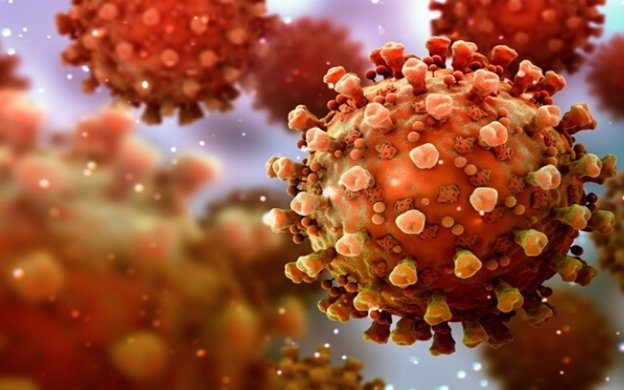Zoom Meeting - May 14th
- Registration for this event is now closed.
|
14 May 2020 |
||
 New York New York
|
||
|
 Parasitology vs COVID-19 - NY Farm Bureau - Elmhurst Hospital Food Drive
Parasitology vs COVID-19 - NY Farm Bureau - Elmhurst Hospital Food Drive
Dr. Andrea Crisanti, professor of molecular parasitology at Imperial College London will be joining us for the May 14th Zoom Meeting. He'll share insights from his work and fields of interest. Main focus will be on the University of Padova - Vo' Studay and the importance of testing and contact tracing.
We will also hear from Jeff Williams Policy Director at the NY Farm Bureau and go live to Elmhurst Hospital where we are having a Food Service for Health Care Workers funded by our NY Rotary Foundation and steered by our member Dr. George Onourah.
 Andrea Crisanti is professor of molecular parasitology at Imperial College London, graduated in Medicine at the University of Rome "la Sapienza' and carried his doctoral work at the Basel Institute for Immunology. Prof. Crisanti has also been appointed full professor of Microbiology and Clinical Microbiology at the University of Perugia where until recently he has coordinated the Centre of Functional Genomics. He has pioneered the molecular biology of the human malaria vector Anopheles gambiae and has made a number of important scientific contributions that advanced the genetic and molecular knowledge of the malaria parasite and its mosquito vector.
Andrea Crisanti is professor of molecular parasitology at Imperial College London, graduated in Medicine at the University of Rome "la Sapienza' and carried his doctoral work at the Basel Institute for Immunology. Prof. Crisanti has also been appointed full professor of Microbiology and Clinical Microbiology at the University of Perugia where until recently he has coordinated the Centre of Functional Genomics. He has pioneered the molecular biology of the human malaria vector Anopheles gambiae and has made a number of important scientific contributions that advanced the genetic and molecular knowledge of the malaria parasite and its mosquito vector.University of Padua Vò Study: One Possible Hypothesis of How to Contain COVID-19

The University of Padua, in collaboration with the Veneto Region and the Red Cross, conducted a study of how to neutralize the spread of COVID-19. What the researchers found was of great interest: the ability to contain the spread of the virus, at least in this one town.
What was the focus of this study?
The University of Padua with the help of the Veneto Region and the Red Cross established a study, starting on March 6, 2020, to test all 3,300 of the inhabitants of a small town called Vò, in northern Italy—the location of the first death due to the novel coronavirus. The researchers have established this study to natural history of the virus, the transmission dynamics and categories of risk.
Significant trend here in Vò Italy
At the start of the study, on March 6, there were 90 infected residents. Many days later, no one else has been infected with the novel coronavirus.
How did this study group accomplish this containment?
Study researcher and Imperial College London infections expert Andrea Crisanti quoted to the Financial Times that “We were able to contain the outbreak here, because we identified and eliminated the ‘submerged’ infections and isolated them.” Mr. Crisanti declared thus far “That is what makes the difference.” Professor Crisanti, according to the Financial Times coverage, is with the University of Padua on his sabbatical.
The key: Identify the ‘Asymptomatic people”
This research group identified at least six asymptomatic people who were tested in the affirmative for COVID-19. Had they not been identified, they would have undoubtedly infected others. Professor Sergio Romagnani with University of Florence reported in letters to the authorities, “The percentage of infected people, even if asymptomatic, in the population is very high.” The professor continued, saying, “The isolation of asymptomatic is essential to be able to control the spread of the virus and the severity of the disease.”
What the University of Padua test evidenced?
The mass testing here in Vò revealed approximately 3% of the residents were infected with the virus and about 50% of this population revealed no symptoms. After a strict lock-down and quarantine of cases, only 0.25% of residents were actually infected thereafter. These individuals were kept in isolation, and thereafter the town started to go back to normal.
Mass testing has taken hold in Italy
Consequently, in Italy, which has been hit hard with mass testing and quarantine procedure, it would appear that the spread of COVID-19 has been contained.
However, the counter argument that mass testing won’t necessarily work
A professor of infectious diseases at the University of Milan and director of infectious disease at the Luigi Sacco hospital in Milan outright warned that mass testing on the asymptomatic population could be proven to be “useless” as “The contagions are unfortunately constantly evolving,” telling the UK’s Guardian that “A man who tests negative today could contract the disease tomorrow.”
Lead Research/Investigator
Professor Andrea Crisanti, Imperial College London
About Jeff Williams
Jeff Williams is the Director of Public Policy at New York Farm Bureau, the state’s largest general farm-membership advocacy organization. As head of the public policy team of eight government and public affairs professionals, he serves as the organization’s lead lobbyist, focusing on labor, environmental and agricultural policy issues at the state capitol in Albany and in Washington, DC.
Jeff graduated from Franklin and Marshall College with a BA in English Literature and obtained a Master’s Degree in Public Administration from Alfred University. He is currently working from home in the Green Mountains of Southern Vermont with his family and a very happy and well-walked dog.

